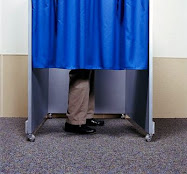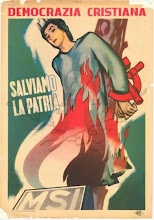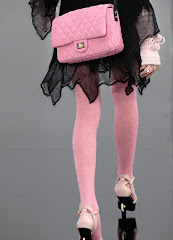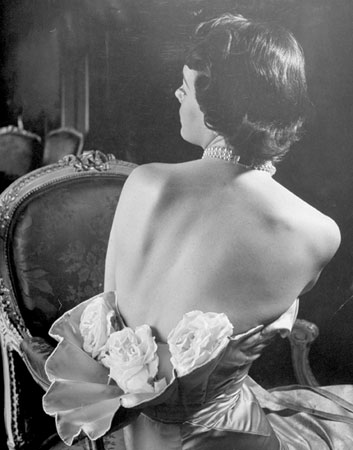Oratory Has Helped Drive Obama's Career -- and Critics' Questions
The 2008 presidential campaign has witnessed the rise of a whole arsenal of new political weapons, including Internet fundraising and sophisticated microtargeting of voters. For Sen. Barack Obama, however, the most powerful weapon has been one of the oldest.
Not since the days of the whistle-stop tour and the radio addresses that Franklin D. Roosevelt used to hone his message while governor of New York has a presidential candidate been propelled so much by the force of words, according to historians and experts on rhetoric.
Obama's emergence as the front-runner in the race for the Democratic nomination has become nearly as much a story of his speeches as of the candidate himself. He arrived on the national scene with his address to the 2004 Democratic National Convention, his campaign's key turning points have nearly all involved speeches, and his supporters are eager for his election-night remarks nearly as much as for the vote totals.
But his success as a speaker has also invited a new line of attack by his opponents.
Sen. Hillary Rodham Clinton (N.Y.), fighting to keep her candidacy alive, has sought to cast Obama (Ill.) as a kind of glib salesman, framing the choice before voters as "talk versus action." Sen. John McCain (Ariz.), the likely Republican nominee, has picked up the attack, vowing to keep Americans from being "deceived by an eloquent but empty call for change."
Obama gave his rivals an opening to question his speechmaking recently when he borrowed a riff about the power of words that was used two years ago by Massachusetts Gov. Deval L. Patrick (D), a friend and informal adviser. But the episode also illustrated a basic fact about Obama's ever-evolving stump speech: It is replete with outside influences, from the Rev. Martin Luther King Jr. ("the fierce urgency of now") to Edith Childs, the councilwoman in Greenwood County, S.C., who inspired the "fired up, ready to go" chant that Obama used for months to end the speech.
To his critics, these influences are proof that Obama's rhetoric is less original and inspired than his supporters believe. "If your candidacy is going to be about words, then they should be your own words," Clinton said in Thursday's debate in Texas. ". . . Lifting whole passages from someone else's speeches is not change you can believe in, it's change you can Xerox."
To his admirers, this magpie-like tendency to pluck lines and ideas from here and there and meld them into a coherent whole is inherent to good speechwriting and part of what makes Obama effective on the stump. It has allowed him to adapt quickly to rivals' attacks, which he often absorbs into his remarks, parroting them and turning them to his advantage.
It has also allowed him to keep his speeches fresh, a challenge in a campaign in which he has given two or three a day, on average, in addition to a dozen or so major televised addresses along the way. And by continually tweaking his pitch with new material, he gives the impression that he is thinking things through in front of his audiences, instead of reciting a rote speech.
"He seems very deliberative," said Martin Medhurst, a professor of rhetoric at Baylor University. "He seems like he's actually thinking about what he is saying rather than just reading from a script."
The basic structure of Obama's speech has remained more or less the same: a statement of why he is running now, an account of the movement the campaign is building, a subtle argument for why voters should not "settle" for Clinton, a list of the things he would do as president "if you are ready for change," and finally an invocation, and rejection, of the arguments against his candidacy.
Along with swapping in and out new riffs for each section, Obama has learned how to adapt the speech in tone and in some of its details for each audience. This was most conspicuous in South Carolina, where he engaged in a running repartee with his mostly black audiences and sprinkled his words with local vernacular.
"It comes from his sense of an audience," said Gerald Shuster, an expert in political communication at the University of Pittsburgh. "He's doing a lot of impromptu when he gets to the stage; he looks out over the audience and has the ability to adjust it."
The clearest comparison, the experts say, is to John F. Kennedy, who like Obama was able to mix high seriousness and humor. The shared cadences with Kennedy are not entirely a surprise -- Obama's young speechwriters are steeped in the addresses of Kennedy and his brother Robert, and the campaign has been getting informal advice from Kennedy speechwriter Ted Sorensen.
But not even Kennedy was perceived as relying on his speaking skills as much as Obama is. "The main difference was that the 1960 campaign was much more substantive than the current campaign," Medhurst said. "There was no criticism of his eloquence or speaking ability," he said of Kennedy.
If Obama has not fallen into a rut as a speaker, it may be partly because he has only recently started performing at the level he is now. Though his oratory has invited comparisons to Kennedy and King (comparisons that make his critics scoff), he was not raised in a deep oral tradition as those men were -- King in his father's Atlanta church and Kennedy among Irish American pols and raconteurs and elite prep schools that stressed rhetoric.
In Obama's telling, he did not recognize the power of public speaking until he participated in an anti-apartheid rally in college and discovered that he had captured the demonstrators when he took the microphone. "The crowd was quiet now, watching me," he wrote in his 1995 memoir "Dreams From My Father." "Somebody started to clap. 'Go on with it, Barack,' somebody else shouted. 'Tell it like it is.' Then the others started in, clapping, cheering, and I knew that I had them, that the connection had been made."
As a community organizer in Chicago after college, Obama learned to make an activist pitch before small groups, but he often stepped back to let local residents who had joined the cause take the lead in speaking at events. At Harvard Law School, classmates recall being struck by Obama's deftness as a speaker in the classroom and in small discussions at the Law Review.
"There was a perception that this is a very gifted individual who has a way with words and an interest and ability in communication," said classmate Bradford Berenson, a Washington lawyer and former associate counsel in the Bush administration. But "these rhetorical and oratorical gifts have clearly developed and reached their full flower in the course of his adult political career."
That growth took a while. In the Illinois Senate, few recalled much memorable rhetoric from Obama, maybe because there was so little opportunity for it. "When you're speaking about a bill that increases the penalty for the possession of cannabis, how much can you address posterity in a speech like that?" said state Sen. Steven Rauschenberger, a Republican who served with Obama.
Obama's first real chance to address matters of higher import came in 2002, when he spoke at a rally against invading Iraq. Marilyn Katz, a longtime Chicago public relations consultant who helped organize the event, recalls it as a kind of coming-out for Obama as a public speaker.
"People who'd never heard of him said, 'Who is this guy?' " Katz said.
State Sen. Denny Jacobs, who served with Obama, said Obama may have learned some lessons from his unsuccessful 2000 bid for the congressional seat of Rep. Bobby L. Rush, a former Black Panther leader. Friends and advisers told Obama that he had failed to connect with many voters because his rhetoric was too wonkish and Ivy League for their tastes. "He talked above people," Jacobs said.
Running for the U.S. Senate four years later, Jacobs said, Obama adopted the main elements of the uplifting, unifying rhetoric he uses today, which Jacobs said offered much broader appeal. Instead of, say, dwelling on the details of welfare or health-care policy, he tied them to themes of "hope and change and the future," he said.
Obama views the 2004 race as the real training ground for his political speaking and says his earlier preparation came from his part-time law lecturing in Chicago as much as from his legislating.
"My general attitude is practice, practice, practice," he said in an interview with David Mendell, who wrote a new biography of Obama. In the 2004 race, "I was just getting more experienced and seeing what is working and what isn't, when I am going too long and when it is going flat. Besides campaigning, I have always said that one of the best places for me to learn public speaking was actually teaching -- standing in a room full of 30 or 40 kids and keeping them engaged, interested and challenged."
He added that David Axelrod, chief strategist in his Senate race as well as in the current campaign, "was always very helpful in identifying what worked and what didn't in my speeches."
The 2004 race also featured the debut of the "Yes, we can" slogan, which Obama used this year after his defeat in the New Hampshire primary, to great effect. As it happens, he resisted the C¿sar Ch¿vez-inspired line when Axelrod first suggested it in 2004, finding it too simplistic, Mendell said.
Obama's keynote address at the 2004 Democratic National Convention in Boston marked his arrival as a speaking sensation. But it exhibited only one side of him as a rhetorical performer: reading a scripted speech off a teleprompter. Obama has relied on the device for most of his major election-night speeches, something politicians rarely do, and for the major thematic speeches he gives on the trail every week or so. According to the campaign, these scripts tend to be a group effort, involving the candidate's 26-year-old speechwriter, Jon Favreau, and other staff members.
But the vast majority of Obama's talking in the campaign has come in the form of the 45-minute stump speech that he has delivered, without notes, several times a day for nearly a year. In states where he has had more time to campaign, a substantial minority of residents turning out to vote have, in all likelihood, heard this speech -- more than 37,000 came to see him speak during his four days in Wisconsin, and 646,000 voted for him in the primary there.
The stump speech is far more freewheeling than his scripted addresses, mixing the colloquial and the lofty and dotted with laugh lines that Obama often chuckles at himself, enjoying his role. Contrary to Obama's reputation as a fiery orator who traffics mainly in abstractions, much of the speech is delivered in a conversational tone, and it includes a long middle section of policy prescriptions. But what audience members tend to remember are the handful of crescendos that punctuate it, which deliver all the more punch for how slowly he builds them.
"He uses highs and lows. He has a wide range of pitch and uses it effectively," said Ruth Sherman, a Connecticut communications consultant. "He knows where to pause and stop and let his audience enjoy him, and he knows how to ride the crest of the wave and allow the momentum to evolve."
While his speeches include more policy gristle than Obama gets credit for, critics note that those ideas amount to a fairly conventional left-leaning platform and are not as novel as the package they are wrapped in.
"People are commenting increasingly on the disjunction between the elevated and exceptionally fine rhetoric and the rather pedestrian policy proposals that form the Obama platform," said Berenson, the Harvard classmate and former Bush counsel.
In a recent column in the Wall Street Journal, Peggy Noonan, who wrote speeches for presidents Ronald Reagan and George H.W. Bush, argued that Obama's addresses were not that eloquent, that some passages read quite trite on the page and lacked evidence of deep thought behind them. What made the speeches effective, she wrote, was that they were inextricably linked to the figure speaking them and to his inspiring life story.
Those who admire Obama's stump skills dismiss the charge by Clinton and McCain that he has been overly reliant on his speaking ability to win votes, arguing that politics is all about verbal persuasion. "The only way he can convince people that he can become president is his rhetoric," said the University of Pittsburgh's Shuster. "What other opportunity does he have?"
But some wonder: How can Obama keep meeting the rhetorical expectations he has set for himself, all the way through the summer and fall -- and possibly beyond?
"It's a terrible burden," said Baylor's Medhurst. ". . . Can that eloquence be maintained? No, it can't -- it's impossible."



















